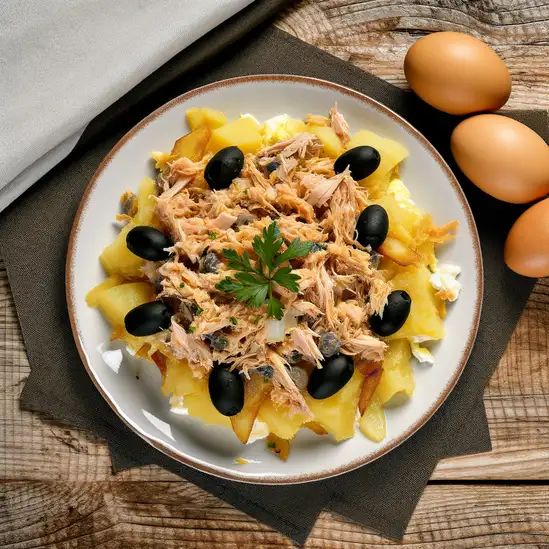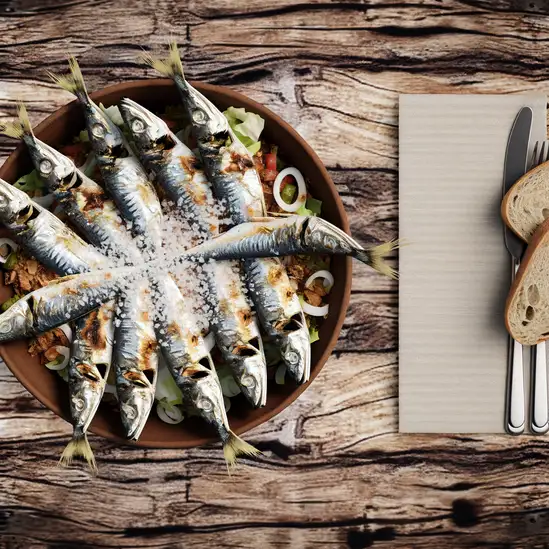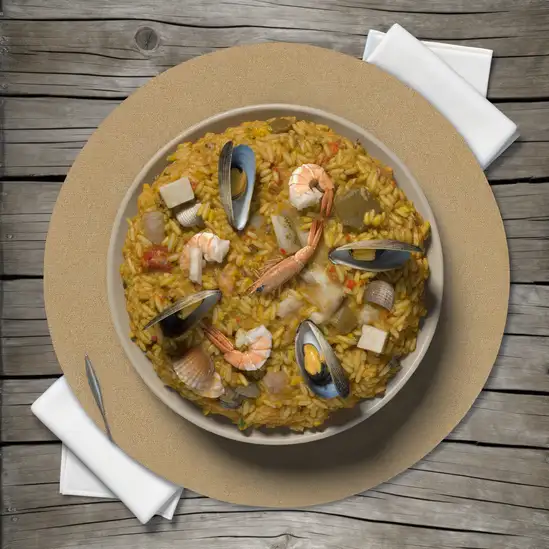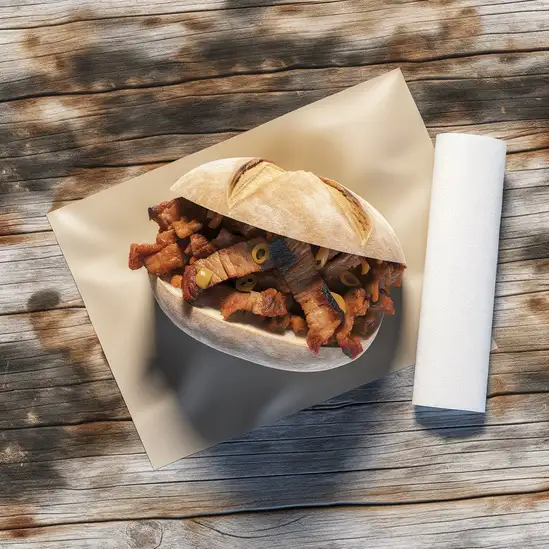



If you ever find yourself craving a perfect blend of seaside charm and vibrant culture,Cascais is where you want to be. Imagine waking up to the gentle crash of Atlantic waves and stepping out onto sun-warmed cobblestones lined with colorful houses and blooming bougainvillea. The air carries a salty freshness mixed with the faint aroma of freshly baked pastries from the local pastelarias. It’s the kind of place where time slows down just enough for you to savor every moment. Walking through the town,you’ll hear the lively chatter of locals at outdoor cafés,the clinking of glasses filled with crisp vinho verde,and the distant call of fishermen bringing in their daily catch. Cascais has this effortless elegance—part old-world fishing village,part chic coastal retreat. The marina sparkles under the sun,dotted with sailboats,while narrow streets invite you to explore quirky boutiques and art galleries showcasing Portuguese creativity. What really makes Cascais stand out is its warm,welcoming spirit. People here have a relaxed,genuine friendliness that makes you feel like you belong,even if you’re just passing through. And the food! Fresh seafood grilled to perfection,paired with a glass of local white wine,tastes like the essence of the ocean itself. Whether you’re lounging on Praia da Rainha or wandering the lively market,Cascais wraps you in a comforting embrace of sun,sea,and soulful Portuguese culture.
The information on this page is currently being reviewed by Tripkliq and should be used as a guide only
Eng word: Hello
Eng pronunciation: Oh-lah
Local language: Olá
Eng word: Goodbye
Eng pronunciation: Ah-deh-oosh
Local language: Adeus
Eng word: Thank you
Eng pronunciation: Oh-bree-gah-doo
Local language: Obrigado
Eng word: How much
Eng pronunciation: Kwahn-too koos-tah
Local language: Quanto custa
Eng word: Toilet
Eng pronunciation: Bahn-yay-roo
Local language: Banheiro
Eng word: Help me
Eng pronunciation: Ah-zhoo-dee mee
Local language: Ajude-me
Eng word: Yes
Eng pronunciation: Seem
Local language: Sim
Eng word: No
Eng pronunciation: Now
Local language: Não
Eng word: Excuse me
Eng pronunciation: Kohm lee-sen-sah
Local language: Com licença
Cascais is believed to have been founded in the 12th century, initially as a humble fishing village. Its strategic location by the sea made it a pivotal point for navigation and commerce.
In the late 19th and early 20th centuries, Cascais became the summer retreat of the Portuguese monarchy and nobility, transforming it into a fashionable seaside resort.
The Citadel of Cascais, a fortification originating in the 15th century, was built to protect the coastline and the entrance to the Tagus River. It has played a crucial role in Portugal's maritime history.
Cascais has a deep-rooted heritage in sailing and regattas, hosting numerous sailing events that attract competitors and spectators from around the world, emphasizing its maritime legacy.
The museum, located in a stunning turn-of-the-century mansion by the sea, was inaugurated in 1931. It houses a remarkable collection of art, furniture, and historical documents, showcasing the rich cultural heritage of Cascais.
Boca do Inferno, translating to 'Mouth of Hell', is a chasm located on the coastline near Cascais. Over centuries, the pounding waves carved this dramatic formation, making it a popular spot for tourists seeking breathtaking views of nature's power.
The Santa Marta Lighthouse, established in the 17th century, guides ships into the Lisbon Harbor. It also houses a museum that educates visitors on the history of lighthouses in Portugal.
Cascais hosts a variety of cultural festivals throughout the year, celebrating everything from traditional Portuguese music and dance to contemporary art and film, reflecting the vibrant culture of the area.
The iconic Tamariz Beach Esplanade, developed in the early 20th century, reflects Cascais' emergence as a sophisticated tourist destination, offering stunning seaside walks and views.
In Cascais, the most common Power Adaptor is Type C, Type F.



A traditional Portuguese dish made with shredded salted cod, onions, and thinly chopped fried potatoes, bound together with scrambled eggs and garnished with black olives and parsley.

Famous Portuguese custard tarts with a flaky pastry crust, filled with a creamy custard and often topped with a sprinkle of cinnamon.

Grilled sardines, a popular dish especially during the summer months, often served with a drizzle of olive oil and accompanied by bread or salad.

A seafood rice dish cooked with a mix of shellfish and fish, flavored with tomatoes, onions, and spices, often served in a rich broth.

A popular sandwich made with marinated pork, typically served in a crusty roll and often enjoyed with mustard or piri-piri sauce.

A traditional bean stew with a variety of meats, typically served with rice and accompanied by orange slices and greens.

A hearty fish stew made with a variety of fresh fish, shellfish, potatoes, and vegetables, seasoned with herbs and spices.
Lisbon feels like a city that’s been gently kissed by the sun and the sea,where every street corner hums with life and stories. Imagine wandering through narrow,cobbled alleys lined with pastel-colored buildings,their azulejo tiles catching the light just right. The air carries a mix of salty ocean breeze and the rich aroma of freshly baked pastéis de nata—those flaky custard tarts you’ll find in every bakery. There’s a rhythm here,a kind of laid-back energy that invites you to slow down and soak it all in.
You’ll hear the soulful strains of fado music drifting from cozy taverns,a haunting soundtrack that feels like the city’s heartbeat. Locals chat animatedly over glasses of vinho verde or ginjinha,a cherry liqueur that’s as sweet as the conversations. The city’s hills offer stunning views where terracotta rooftops spill down toward the Tagus River,and the sunlight shimmers on the water like a thousand tiny mirrors.
Lisbon’s charm lies in its blend of old and new—ancient trams clatter past sleek street art,and centuries-old castles overlook buzzing markets filled with fresh seafood and vibrant produce. It’s a place where history and modern life dance together effortlessly,inviting you to explore,taste,and feel its unique pulse. Trust me,once you’ve wandered through its neighborhoods and tasted its flavors,Lisbon stays with you long after you leave.
Imagine stepping into a place where the ocean breeze carries the scent of blooming jacarandas and the distant hum of traditional Portuguese guitars fills the air—that’s Funchal for you. This city feels like a warm embrace,perched on the lush,rugged coastline of Madeira. Walking through its cobbled streets,you’ll notice vibrant markets bursting with fresh tropical fruits and the rich aroma of freshly baked bolo do caco bread. The colors here are alive:from the deep blue Atlantic stretching endlessly to the bright bougainvillea cascading down old stone walls.
Funchal’s charm lies in its blend of old-world grace and lively,modern spirit. Locals chat animatedly over glasses of Madeira wine in cozy tavernas,while street art peeks out from unexpected corners,telling stories of the island’s history and culture. The city pulses gently with a relaxed rhythm—you can feel it in the slow,deliberate pace of life and the genuine smiles of the people you meet.
Don’t miss the chance to ride the cable car up to Monte,where the views make your breath catch,or to wander through the botanical gardens,where exotic plants and butterflies create a quiet sanctuary. And when night falls,the harbor lights twinkle like stars,inviting you to savor fresh seafood paired with that sweet,fortified wine Madeira is famous for. Funchal isn’t just a destination; it’s a feeling you carry with you long after you leave.
If you ever find yourself dreaming of a place where the ocean breeze carries the scent of salt and blooming hydrangeas,Ponta Delgada is that kind of spot. It’s the lively heart of São Miguel Island in the Azores,and the moment you step into its cobbled streets,you feel this warm,welcoming pulse—like the city itself is breathing with you. The colorful buildings,with their intricate stonework and bright shutters,seem to tell stories of centuries past,while locals chat animatedly over coffee in cozy cafés that spill out onto sun-dappled squares.
Walking along the marina,you’ll hear the gentle slap of waves against boats and the distant call of seagulls,mingling with the laughter of children playing nearby. The air is fresh,tinged with the promise of adventure,whether you’re about to explore volcanic craters or dive into a plate of freshly caught seafood. Speaking of food,don’t miss trying the local cozido—a stew slow-cooked underground by volcanic heat,rich with flavors that feel like a warm hug on a cool day.
What really makes Ponta Delgada special is its blend of old-world charm and vibrant island life. There’s a relaxed rhythm here,where time slows just enough for you to savor a glass of local wine while watching the sun dip behind the hills. It’s a place that invites you to linger,to explore,and to fall a little in love with the simple,beautiful moments that make travel unforgettable.
Barcelona feels like a vibrant mosaic where every corner pulses with life and color. The moment you step onto its sun-drenched streets,you’re wrapped in a warm Mediterranean embrace—salt in the air,the distant hum of waves mingling with lively chatter from bustling cafés. The city’s energy is contagious,a blend of old-world charm and modern creativity that invites you to slow down and savor each moment.
Wandering through the narrow alleys of the Gothic Quarter,you’ll hear the soft clinking of glasses and the melodic strum of a street guitarist,while the scent of fresh-baked bread and roasting coffee drifts from cozy bakeries. Barcelona’s architecture is like a living art gallery—Gaudí’s whimsical buildings,with their undulating lines and vibrant mosaics,feel almost dreamlike against the bright blue sky. It’s a place where history and imagination dance together.
Food here is a celebration in itself. Imagine biting into a perfectly crispy,golden croqueta or savoring the rich,smoky flavors of a traditional paella,all washed down with a glass of chilled cava. The city’s markets,like La Boqueria,burst with colors and aromas—ripe tomatoes,fresh seafood,and fragrant herbs—that make you want to taste everything.
What makes Barcelona truly special is its spirit:a city that lives passionately,where locals and visitors alike gather to share stories,laughter,and the simple joy of being in a place that feels both timeless and alive. Trust me,once you’ve experienced it,you’ll carry a piece of Barcelona’s magic with you long after you leave.
Imagine stepping into Palma,and instantly feeling the gentle Mediterranean breeze wrap around you,carrying the scent of salty sea air mixed with freshly baked ensaimadas from a nearby bakery. This city pulses with a laid-back yet vibrant energy—where ancient stone streets meet sleek modern cafes,and the golden light of the sun casts a warm glow over the terracotta rooftops. Palma isn’t just a place to see; it’s a place to soak in,with its lively plazas where locals chat over cortados and the distant hum of guitar strings drifting from a tucked-away bar.
Wandering through the old town,you’ll find yourself mesmerized by the soaring Gothic cathedral,its intricate details catching the sunlight in a way that feels almost magical. Around every corner,there’s a story—whether it’s the colorful market stalls bursting with fresh produce and spices or the quiet courtyards where bougainvillea spills over ancient walls. The city’s character is a beautiful blend of tradition and modernity,where centuries-old architecture sits comfortably alongside trendy boutiques and art galleries.
And the food—oh,the food! Tapas here are an experience,from tender sobrassada to briny olives and perfectly grilled seafood,all paired with a glass of local wine that tastes like sunshine in a bottle. Palma invites you to slow down,savor each moment,and feel like you’re part of a living,breathing canvas painted with warmth,history,and a touch of Mediterranean magic.
If you ever find yourself wandering through Santa Cruz de Tenerife,you’ll immediately notice its lively,sun-soaked energy that feels both relaxed and vibrant at once. The city hums with a unique rhythm—where the salty ocean breeze mingles with the scent of fresh pastries from local bakeries,and the chatter of street markets blends with distant waves crashing against the shore. It’s a place where modern life and tradition dance effortlessly side by side.
Walking through its streets,you’ll be drawn to the colorful architecture,from sleek contemporary buildings to charming colonial facades,all framed by the lush greenery of palm trees and blooming bougainvillea. The plazas buzz with locals sipping strong coffee or sharing tapas,and the sound of Spanish guitar often drifts from cozy cafés. There’s a warmth in the air,not just from the sun,but from the genuine friendliness of the people who seem to take pride in their city’s rich culture and history.
What really makes Santa Cruz stand out is its blend of island charm and cosmopolitan flair. You can spend your morning exploring vibrant markets filled with tropical fruits and handmade crafts,then lose yourself in art galleries or catch a lively street performance. And when evening falls,the waterfront comes alive with twinkling lights and the tempting aroma of fresh seafood grilling nearby. It’s a city that invites you to slow down,savor every moment,and soak in the joyful spirit that lingers long after you’ve left.
Scammers may install skimming devices on ATMs to steal card information when tourists withdraw cash.
Some taxi drivers may overcharge tourists by taking unnecessarily long routes or claiming their meter is broken.
Unlicensed individuals may pose as tour guides and charge tourists for inaccurate or subpar tours.
Tourists in crowded areas or public transportation may be targeted by pickpockets who steal wallets, phones, or other valuables.
Some restaurants may inflate bills or add hidden charges, especially if they sense the customer is unfamiliar with local pricing.
Scammers may set up street gambling games, such as shell games, designed to trick tourists into losing money.
Street vendors may sell counterfeit goods or overpriced items, claiming they are authentic or handmade.
Tourists may be approached with offers for fake timeshares or vacation rentals that don't exist or are misrepresented.
Portugal has decriminalized the possession of small amounts of drugs for personal use, including in Cascais. This means that while possession is not a criminal offense, it is still illegal and can result in fines or mandatory treatment programs. Trafficking and distribution of drugs remain serious criminal offenses with severe penalties. Tourists should be aware that drug use in public places is not tolerated and can lead to legal consequences.
In Cascais, Portugal, smoking is prohibited in enclosed public spaces, including restaurants, bars, and public transportation. There are designated smoking areas in some public places, and it is important to look for signs indicating where smoking is allowed. Smoking is also banned in certain outdoor areas, such as near schools, playgrounds, and sports facilities.
Vaping in Cascais follows similar regulations to smoking. It is prohibited in enclosed public spaces and certain outdoor areas. Tourists should look for designated vaping areas and adhere to local signage. The sale of vaping products is regulated, and there are age restrictions in place, typically prohibiting sales to individuals under 18 years old.
What are other people saying about Cascais?
Recent Social posts about Cascais
There is nothing to show you for now.